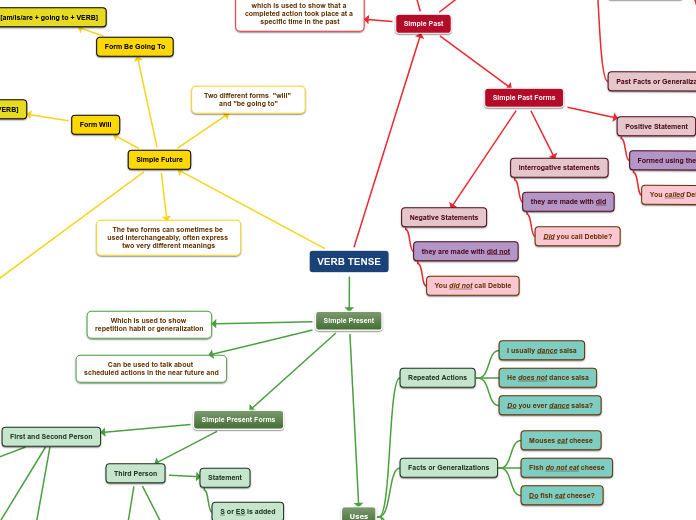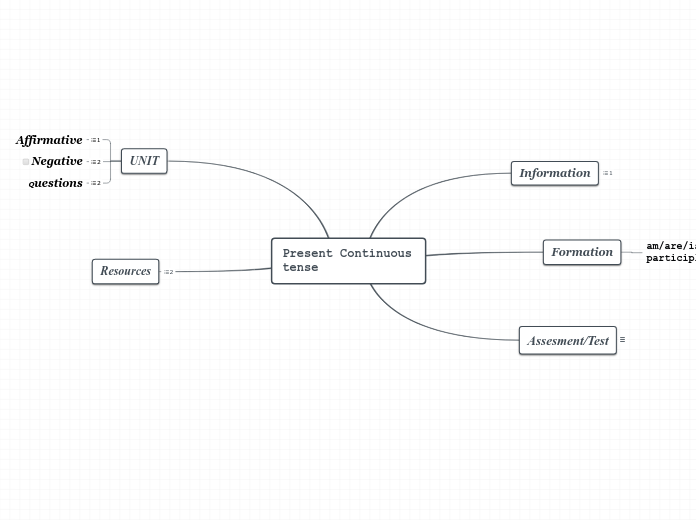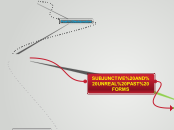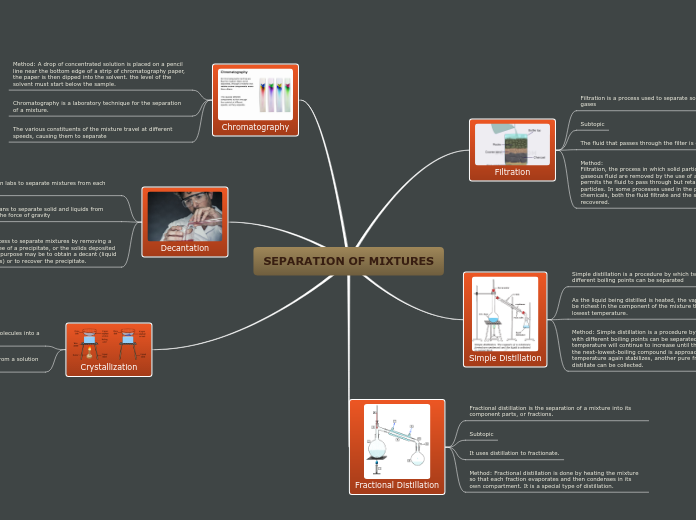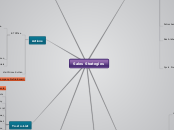They are made using the auxiliar "do" and adding "not" to them
Do not (Don't)
You do not speak English
They are made using the auxiliar with do
Do you speak English?
It is the base of the verb
You speak English
VERB TENSE
Simple Future
"Will" or "Be Going to" to Express a Prediction
Beyonce's new album is going to be great
Beyonce's new album will be great
The next year is going to be amazing
The next year will be amazing
"Be going to" to Express a Plan
Are you going to cook dinner tomorrow?
Fran is not going to watch netflix tonight
I'm going to be a graphic designer
"Will" to Express a Promise
Don't worry, I'll be there
I will give you a hug tomorrow
I will read the book you told me about
"Will" to Express a Voluntary Action
I won't do a gift for christmas
Will you help me?
I'll make you a cake
Form Be Going To
[am/is/are + going to + VERB]
You are not going to meet Jane tonight.
Are you going to meet Jane tonight?
You are going to meet Jane tonight
Form Will
[will + VERB]
You will not help him later
Will you help him later?
You will help him later
The two forms can sometimes be used interchangeably, often express two very different meanings
Two different forms "will" and "be going to"
Simple Past
Past Facts or Generalizations
Did you learn English when you were a kid?
We didn't talk much today
She was overweight as a child, but now she is very skinny
Habits in the Past
Did you go to a camp when you were a kid?
I didn't know how to play baseball
He learned to swim when he was a child
Duration in the Past
How long did you sing in the karaoke?
We danced in the club all night
I lived in Bogota for 5 mons
A Series of Completed Actions
Did you buy flour, search the recipe, and bake the cake?
I listened to music, played soccer, and watched my favorite tv show
Completed Action in the Past
Did maria read a book?
She did not read a book
Maria read a book
Simple Past Forms
they are made with did not
You did not call Debbie
they are made with did
Did you call Debbie?
Positive Statement
Formed using the verb+ed
You called Debbie
used to talk about past habits and generalizations
which is used to show that a completed action took place at a specific time in the past
Simple Present
Uses
Now (Non-Continuous Verbs)
Do you dance with me now?
She's not dance now
I'm dance now
Scheduled Events in the Near Future
When does the plane leave?
The plane does not leaves this morning at 8AM, its leaves tonight at 8PM
The plane leaves this morning at 8AM
Facts or Generalizations
Do fish eat cheese?
Fish do not eat cheese
Mouses eat cheese
Repeated Actions
Do you ever dance salsa?
He does not dance salsa
I usually dance salsa
Simple Present Forms
Third Person
Negative Statements
They are made using the auxiliar "does" and adding "not" to them
He does not speak English
Does not (Doesn't)
Interrogative statements
they are made using the auxiliar "does"
Does he speak English?
Statement
S or ES is added
He speaks English
First and Second Person
Can be used to talk about
scheduled actions in the near future and
Which is used to show
repetition habit or generalization
